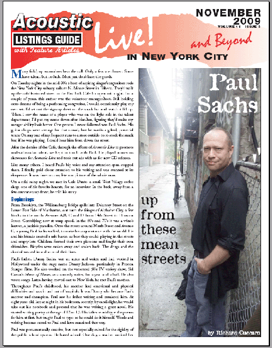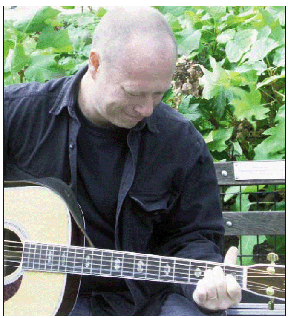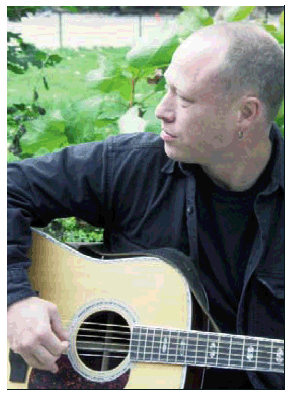Paul Sachs
up from these mean streets
by Richard Cuccaro
Many folk/pop wannabees hear the call. Only a few are chosen. Some have talent, but no luck. Most just don’t have the goods.
On Tuesday nights in the mid-90’s a host of aspiring singer/songwriters rode the New York City subway rails to N. Moore Street in Tribeca. They’d walk up the cobble-stoned street to the Fast Folk Cafe for open mic night. For a couple of years, this author was the volunteer manager/host. Still holding onto dreams of being a performing songwriter, I would occasionally play my own set. I’d set out the sign-up sheet on the snack bar and watch it fill up. When I saw the name of a player who was on the light side in the talent department, I’d put my name down after him/her, figuring they’d make my meager ability look better. One person I never followed was Paul Sachs. His guitar chops were average for that crowd, but he was/is a gifted, powerful tenor. On any one of my frequent runs to a store outside, to re-stock the snack bar, if he was playing, I could hear him from down the street.
After the demise of the Cafe, through the efforts of Acoustic Live to promote under-the-radar talent, we kept in touch with Paul. He played numerous showcases for Acoustic Live and took out ads with us for new CD releases.
Like many others, I heard Paul’s big voice and my attention span stopped there. I finally paid closer attention to his writing and was stunned at its
eloquence. It was time to complete our picture of the whole man.
On a cold rainy night, we met in Cafe Dante, a small West Village coffee shop, one of his favorite haunts, for an interview. In the back, away from a few customers up front, he told his story.
Beginnings
From Brooklyn, the Williamsburg Bridge spills into Delancey Street on the Lower East Side of Manhattan, out onto the fringes of Alphabet City, a few blocks to the north: Avenues A,B, C and D from 14th Street to Houston Street. Gentrifying now at warp speed, in the 60’s and 70’s it was a wino’s heaven, a junkie’s paradise. Onto the streets around Ninth Street and Avenue C, a young Paul Sachs walked, to make his acquaintance with the world. He and his friends created a safe haven, as best they could, playing in the streets and empty lots. Children formed their own platoons and fought their own skirmishes. Bicycles were stolen away and stolen back. The drugs and the
alcohol weaved in and around their lives.
Paul’s father, Danny Sachs, was an actor and writer and had worked in Hollywood under the stage name Danny Jackson, particularly in Preston Sturges films. He also worked on the venerated 50’s TV variety show, Sid Caesar’s Show of Shows, as a comedy writer, for a year and a half. He also wrote songs. Later, having moved east to New York, he met Paul’s mother.
Throughout Paul’s childhood, his mother had emotional and physical
difficulties and was in and out of hospitals. It was Danny who became Paul’s mentor and champion. Paul saw his father writing and emulated him. At eight years old, late at night in his bedroom, secretly, by candlelight, he would take out his notebook and pretend that he was writing a great novel. He
started writing poetry at the age of 12 or 13. His father would type the poems for him at first, but taught Paul to type, so he could do it himself. Words and writing became sacred to Paul and have remained that way.
Paul was preturnaturally creative, but not especially suited for the rigidity of the public school system. He hated school. One day, a teacher noticed her reluctant pupil reading poems and asked what they were. Paul replied, “These are poems I wrote.” The teacher called him a liar, disbelieving that he could ever be capable of writing poetry. Paul was stunned that an “authority figure” would behave so callously. Danny went in to have a talk with the teacher. This was one of the many times he’d visit school to stand up for his son.
The Harry Chapin Effect
Danny wanted Paul to stay out of trouble, so he sent him to a camp out on Long Island. This particular camp specialized in creative arts. Paul got into the theater group. He acted and danced as well, and had the time of his life. One day, Harry Chapin came to play a concert. This was a momentous occasion. Paul had been listening to his records at home, particularly Verities and Balderdash, along with his father. Paul mentioned the song, “30,000 pounds of Bananas,” which I’d never heard of. The big hit from that album was “Cat’s in the Cradle.” This was the first time Paul had ever seen anyone of this magnitude up close and it had a huge impact on him. Sadly, Harry was killed in a car wreck about 6 months later. Paul remembers how crushed he felt at hearing the news.
Lessons from Rimbaud
One of Paul’s counselors took an interest in Paul’s writing and told him that he’d learn from reading the work of Arthur Rimbaud. So, like many before him, Bob Dylan included, Paul dove into the maelstrom of words, astounded and inspired by what he found. Rimbaud’s A Season in Hell resonated strongly for Paul. Growing up on the Lower East Side, there were
elements of hell everywhere.
Danny also wanted Paul to play an instrument. No small surprise, Paul chose the guitar and started taking lessons. He played songs with his friends, at home in his bedroom, and worked on his writing. Others would approach guitar as a way to become the next Eddie Van Halen, but for Paul, the emphasis was on setting his poetry to music, writing songs. “That filled my world,” he says. He played the open mics at Folk City and The Speakeasy.
He had a job as an usher at the Orpheum Theater on Second Avenue and management would allow him to busk at intermission. Paul would play outside the Orpheum, then “hit” the intermission at the Astor Place Theater, before heading back to work the end of his shift at the Orpheum. His powerful voice didn’t set well with some bystanders, and he endured an occasional shower from a cup for water hurled at him and his guitar and case. Hearing that, I said, “That must’ve take a thick skin.” “It still does,” he replied. Paul formed a rock group that lasted for about a year-and-a-half. They played a set of six grunge-style songs that Paul wrote, over and over, at high school events.
While his father did his best to see that Paul avoided being a “street kid,” insisting that he stay in school and get an education, elements of the street would chew away at the edges of Paul’s life, threatening to consume him. The City As School Alternative High School at Clarkson and Houston Streets in Soho was where they sent the misfits, kids who were considered unteachable in a “normal” classroom. So, of course, this was where Paul was sent. He recalls that, among the hard cases, there were a lot of artistic types there as well.
He had two sets of friends during high school -- one was his old friends from his childhood, and the other -- guys who rode motorcycles and engaged in larceny and consumed large quantities of alcohol and other recreational substances. While Paul was generally well-behaved, he had his wild side. He liked motorcycles, wearing leather, drinking, smoking, and using said recreational pharmaceuticals.
During the holiday season, he was selling Christmas trees in a very treacherous Hell’s Kitchen. He was the only teenager in the group. The men were drinking private stock hidden in paper bags. Paul had long hair back then, and the guys would send him from the safety of their wire enclosure, saying “Hey ‘Jesus,’ go sell some Christmas trees!”
The Bottom Comes Calling
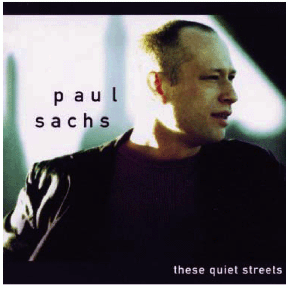
Paul’s mother was in the hospital again, so Paul was left alone, adrift without his anchor and his champion. He began drinking heavily and using an increasing amount of drugs. He was aware that it was crazy to overdo certain chemicals and pulled back. He says today that, “Fear kept me alive.”
However, the bottom still lay in wait. One night, when he was in possession of various illegal substances, in the wrong place at the wrong time, he was surrounded by the police and taken into custody. It was Easter weekend and the wheels of justice had ground to a halt. He spent three days in “The Tombs,” on an express track to Riker’s Island, where an uncertain end waited. Older criminals whispered in his ear, “Wait ‘til we get to Rikers…”
Then, out of the blue, his name was called amidst about four others, and he was taken out of his cell. The cop who had arrested him drove him home and gave him some well-meaning, but double-edged advice: “Kid… Stay out of trouble… Don’t buy drugs… don’t do drugs… just drink!” Paul took this to heart and never used drugs again. For a number of years he continued to play his music, while drowning his sorrow and fear in gallons of Southern Comfort.
Although he juggled work, high school and an ongoing drinking problem, Paul managed to stay in school and graduate. His father had insisted that he should get a high school diploma. Continuing to stay connected to the performing arts, he had a job working at the Village Gate, handling the spotlight. His guitar was never far away, however, and he continued to play and write.
From Contender to Soloist
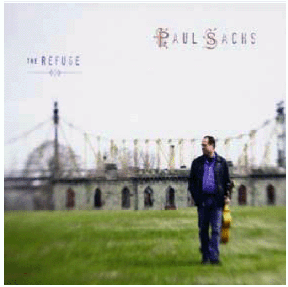








When the Contenders disbanded, Paul determined that he’d take his shot as a solo act. The acoustic singer/songwriter scene was a new experience for him. He began playing venues such as The Sidewalk Cafe and The Postcrypt. Along the way, he met mandolinist and, by now, longtime friend and sideman, Rob Meador. In the mid-1990’s the Fast Folk Cafe was born and it was here that Paul found a sense of community and support for him as an artist. In July of 1995, at the Cafe, a group of New York City singer/songwriters recorded a compilation CD for the Fast Folk Musical Magazine collection. It was released in October.
On that issue, number 804, Paul can be heard singing his song,”Better Man Than Me” (it can also be found on his album No Trouble Here). The lyrics accurately portray the elements of desperation within his life:
Some men go crazy
By the light of their own moon
I thought nothing would save me
born without any silver spoon
If you could whip this world
and never write back home again
and still find peace / If you can revel in
the darkness this world
creates… well brother, I hope it’s
diamonds / diamonds that you see
In a lonely mind waiting / You’re a
better man than me…
During his early days as a solo artist, Paul was living on Saint Mark’s Place, at the heart of the action. It’s no shock to learn that his drinking resumed. However, this time, a see-saw battle raged inside of him as he engaged in a form of “controlled” drinking. One day, sitting on a rooftop with a pack of cigarettes and a couple of six-packs, he had a moment of insight. He could see his life stretching out before him, the alcohol coursing down his throat, year after year, over and over. This time, he decided, enough was enough. It was time to stop. And so it was. Ten years later, he has still not taken a drink.
The Graduate
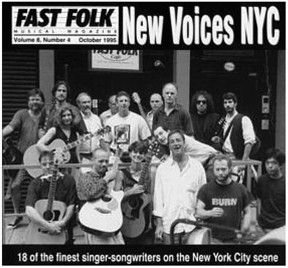
Additionally, Paul had been looking after his mother, all through the years of her hospitalization and various treatments. Coincidentally, 2006 was also the year that she passed away.
About 8 years ago, he met the woman who would become his wife, and they became good friends. She’d grown up on the Bowery and had many of the same life experiences as Paul. Things got serious a couple of years ago and they got married last year. She’s been Paul’s biggest supporter.
The Writing
Paul worked in a used bookstore for 6 years. He read books voraciously and said that it was a great education all by itself. His song, “Beware of Surprise,” from his latest CD, The Refuge tells how the job ended:
I had a boss that jumped off the roof
of the Gramercy Park hotel
I lost the job and without any proof
I went to see where he fell.
I asked him if it was a true story and he told me it was about the owner of the used bookstore.
After the Fast Folk Cafe closed, Paul began sporadically attending Fast Folk founder Jack Hardy’s song swaps. These days, he goes on a steady basis.
Most of Paul’s turbulent early days are found in the lyrics to the songs on his first two albums.
In “Mean Streets,” from the CD These Quiet Streets, he’s looking back, perhaps on the way to his college classes, at more turbulent moments:
I’m walkin’ on sidewalks
this city built long ago
what once were neighborhoods
are communities on death row
I’m walking down mean streets
I’m on the outside looking in
I’m walking down mean streets
in places I once had been
stray cats and sad dogs
lay under a leafless tree
in junkyards a wind blows
the architecture of what used to be
I’m walking down mean streets
I’m on the outside looking in
I’m walking down mean streets
in places I once had been
“Stolen Bicycles,” from The Refuge, shimmers with the vibrancy of childhood’s wild abandon:
And it’s barrelin’ down upon you and me
Banana seats and handle bars
Riding in between the cars / With you
Sidewalk flying ‘neath our feet
Burning down the NY street / We flew
on our stolen bicycles
The song, “Henry,” (from No Trouble Here) is a composite of childhood friends. He seems to have taken his cues from Rimbaud, who exhorted writers to “expand their senses and find new words.”
Henry meet me down by the East River
I’m counting all the times when we could have died
When we lost all our fears
and started the fires on the Lower East Side
Henry meet me down by the East River
I’m warmer than ever and under the sun
Let me lick all your tears my old friend from nowhere
I need someone
Let me build you an airplane from broken homes
we can fly away over the churches
Where everything holy’s been misunderstood
my phantom friend from the old neighborhood
There is a wrenching “goodbye” written throughout the title track of
The Refuge:
Before I die make me a promise
Make a rosary or a wish
I don’t believe in heaven
I don’t wanna know if it exists
Tell ‘em I did the best I could
Now the day is almost dark
There’s nothing like the refuge of
The refuge of your heart
There you are / I can see you
You’re heading towards the light
You’re running through a field in southern France
On a warm hot summer night
You’re as free as the wind now
There’s fire in your eye
There’s nothing like the refuge of
The refuge of goodbye
Anyone who does not feel his/her heart break a little, listening to this song, might want to have his/her pulse checked.
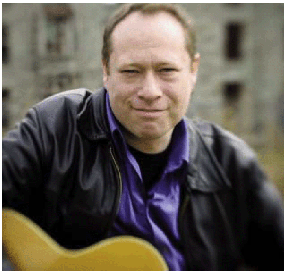
“…From time to time my heart is like some oak / Whose blood runs golden where a branch is torn.”
--Arthur Rimbaud, “Evening Prayer”
Paul’s heart has bled into his songs for a long time, now. While many listeners may hear the influences in his voice; Springsteen, coming back to his acoustic roots, John Hiatt, breaking through on Bring the Family… others will reach past those easy comparisons and see the poet beneath.
We hope our readers will look for Paul’s name in these pages (and elsewhere) and go to see him live. The voice will reel you in, but the poetry will steal your heart.
Website: www.paulsachs.com
Upcoming Performances:
Nov 13-14 Northeast Folk Alliance Conference - Showcases include:
Friday Night: Acoustic Live 1:45am, Rm 1323,
“Emily’s List,” 3am, Rm 1425
Saturday Night: “Concerts In Your Home,” 2am, Rm 1422
Dec 6 7:30pm Parkside Lounge
317 E Houston St, NYC

